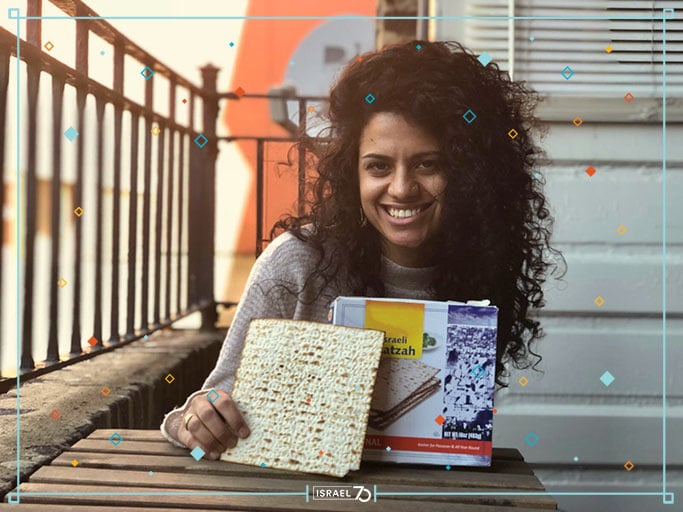By Bat El Trabelsi
Through the Jewish Federation of Greater Philadelphia, Bat El Trabelsi serves as an emissary (or “shlicha”) from Israel for our Jewish communities. By engaging Greater Philadelphia in the life and culture of Israel, Bat El helps to strengthen the connection between the two countries.
In Israel, everything changes during major holidays, and the biggest of the big holidays is Passover. Everyone celebrates; even when I lived in Tel Aviv or on a kibbutz, both generally secular places, people came together for Seder. Nearly all stores stop selling chametz (bread and any products that contain flour). The whole country takes this time to pause and reflect. But first: we clean.
Ay yi yi, the cleaning! Israeli students have 17 days off from school for Passover (seventeen days!), including eight days before the holiday starts just so they can help with the cleaning. We scour our entire home, inside and out. We wash, dust, vacuum and scrub. Many people even apply a fresh coat of paint to each room. Most importantly, we clear out every crumb of chametz. In my home, once a room was kosher, my mother blocked it off and you were in big trouble if she caught you holding food anywhere near it.
To me, the wonder of Passover is how it brings family together. On the Mizrachim side of my family, celebrating begins a little earlier, on the first day of Nissan (the first month of the Jewish calendar), when my father and his brothers perform bsisa: For good luck, they hold their keys over a bowl filled with a mixture of wheat and barley, pouring in oil to represent one of the offerings in the Temple. Soon after, we gather for Passover. My family is huge — my dad alone has 12 siblings, all married with children. Imagine the Seder! Smiling and laughing, we all crowd around my grandmother’s table, overflowing with banatage (stuffed potato), kfita (meatballs made with matzoh), rice and soup. Every year, the evening begins with my father and all of his siblings chivalrously arguing over who will read the “evil son” passage of the Haggadah, each wanting to shoulder that burden for the others.
And as we gather around to read the Haggadah, we remember that Passover’s history of the Jews escaping the bondage of Egypt into their own freedom is only the beginning of the story. Soon to come are the holidays of Yom Ha’atzmaut, Yom HaShoah, and Yom HaZikaron — Israeli Independence Day, Holocaust Remembrance Day, and Memorial Day. We cannot think of our freedom without thinking of the 1948 founding of the State of Israel. And we cannot think of independence without also honoring the martyrs and victims of terror who have been lost. All of these holidays are interwoven, making for a spring full of renewal, reflection, and remembrance.



